- Author Jason Gerald gerald@how-what-advice.com.
- Public 2024-01-19 22:11.
- Last modified 2025-01-23 12:04.
Changing the home page (start page) in the Mozilla Firefox Internet browser allows you to customize your internet browsing experience. Whether you want a serious history page or the latest edition of The Onion, selecting a new page is usually quick and easy. If your changes don't work, follow the troubleshooting section below to look for malware on your computer.
Step
Method 1 of 4: Drag and Drop (Computer)
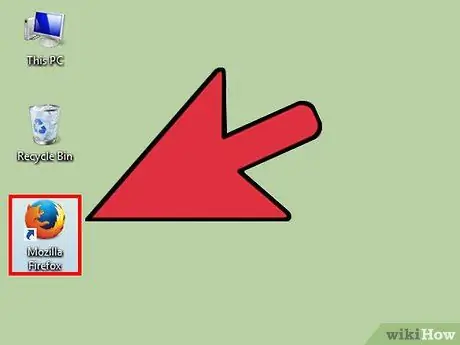
Step 1. Start Firefox
Double-click the Firefox icon on the desktop to launch it.
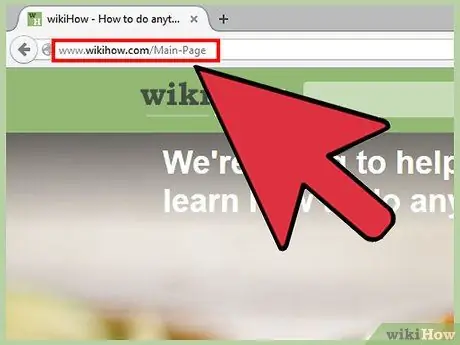
Step 2. Go to your desired home page
Open a new tab and visit the page you want to use as the start page in this browser.
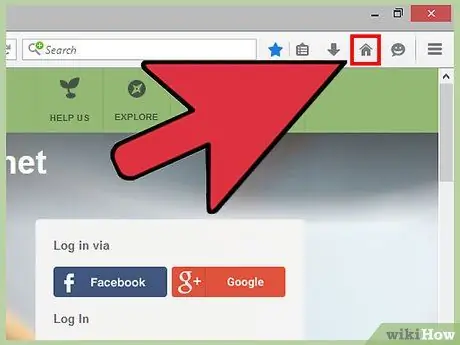
Step 3. Drag the tab to the home icon
Click and hold the tab you want to use for the home page. Drag the tab to the home icon, which looks like a house.
- It's a tab at the top of the Firefox window, showing the icon and page title.
- The home icon is usually below or to the right of the address bar. If the icon doesn't appear, right-click (control+click on Mac computers) an empty area near any tab. Select Customize, then find the home icon and drag it to any toolbar.
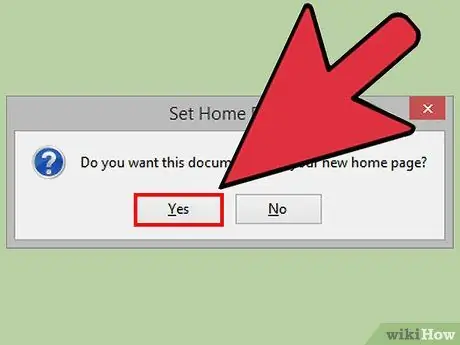
Step 4. Confirm your decision
Click Yes in the menu that appears to change your home page.
If this doesn't work, try the preferences menu method described below
Method 2 of 4: Preference Menu (Computer)
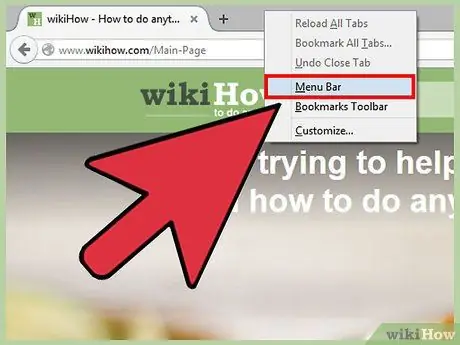
Step 1. Bring up the top menu bar
In some versions of Windows, the top menu bar is hidden by default. Bring up the menu bar in one of the following ways (you may have to try more than one):
- Press Alt.
- Press F10.
- Right-click an empty area in the tab bar and select Menu Bar
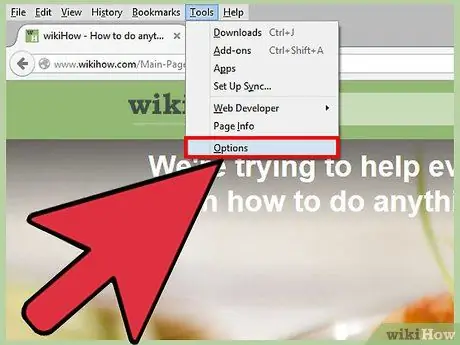
Step 2. Select Firefox, then Preferences
Click the word Firefox from the top menu bar, then select Preferences from the drop-down list. Preferences will open in a new tab or window that appears.
Instead, some versions of Firefox use Options
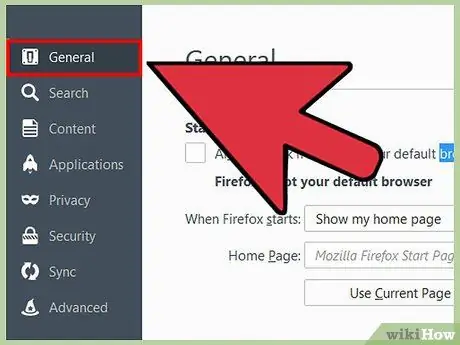
Step 3. Set Firefox to display the home page when it starts
Go to the Preferences tab and look for the words "When Firefox starts:" followed by the drop-down menu. Click the drop-down menu and select Show my home page.
If this option does not appear, click the General tab
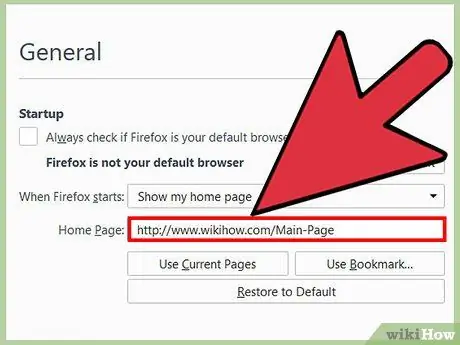
Step 4. Change your home page
Under the "When Firefox starts:" menu, look for the words "Home page:" followed by an empty box next to it. There are several ways to set up the home page here:
- Type the URL of your desired home page into the blank box. If you want to load multiple pages when Firefox starts, separate the URLs with the pipe symbol: |.
- Click Use Current Pages to have all the currently open tabs appear when you start Firefox.
- Click Use Bookmark… to select one of the bookmarks you saved as your home page.
- Click Restore to Default to return to the default Mozilla home page.
Method 3 of 4: Changing Homepage on Android
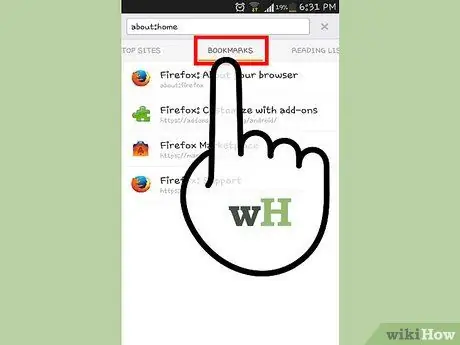
Step 1. Visit the Firefox start page
The Firefox start page on Android devices is actually a grid that displays previews of the sites you visit frequently. To view this start page, tap the title bar, then Bookmarks, then Firefox Start.
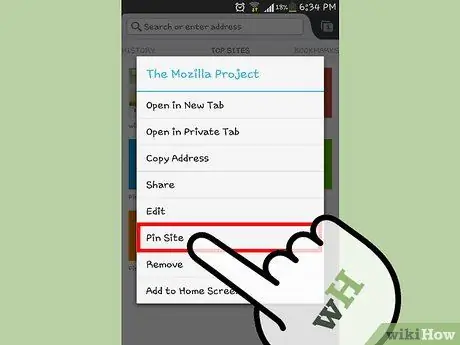
Step 2. Pin (pin) a site to the start page
On the start page, tap and hold the site you want to permanently add. Select Pin site from the menu that appears to create a permanent start page fixture.
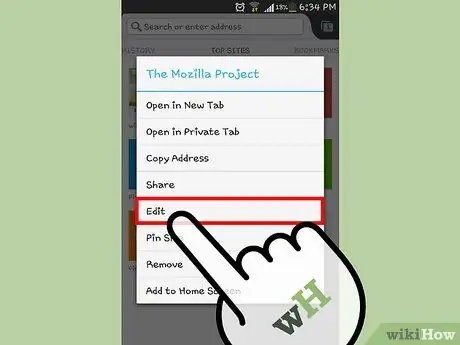
Step 3. Add the new site to the start page
If the site you want doesn't appear in the grid, tap and hold the square box that you're not interested in. This time, choose Edit from the menu that appears. Now you can enter a URL, or choose a site from your bookmarks or the sites you visit most often.
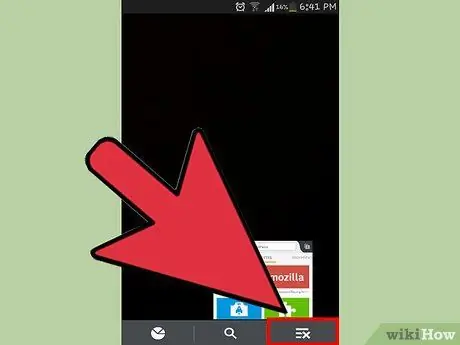
Step 4. Exit the app at the end of each session
When you just swipe through the Firefox app, the browser will still run in the background. If you want to see your pinned sites later when you open the app, tap the menu icon and select Quit.
Method 4 of 4: Removing Malware Homepage (Computer)
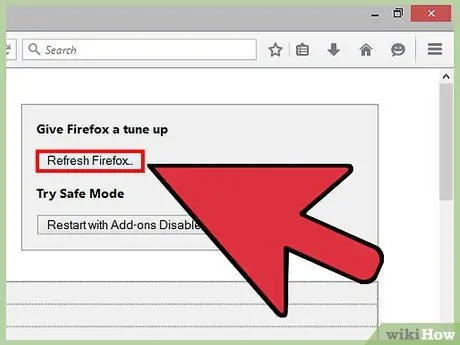
Step 1. Reset your Firefox
If the home page shows ads that you don't want, the easiest solution is to reset Firefox. Note that this will remove all extensions and add-ons in that browser. But the saved bookmarks and passwords are still there.
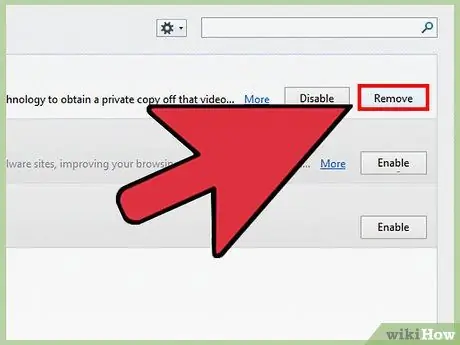
Step 2. Remove malicious add-ons
Unwanted add-ons can force your home page and prevent you from changing it. If you don't want to reset Firefox, there are other ways to solve the problem:
- Click the menu button (the button with three horizontal lines).
- Select Add-ons.
- Click Remove next to an add-on that you don't recognize.
- Restart Firefox.
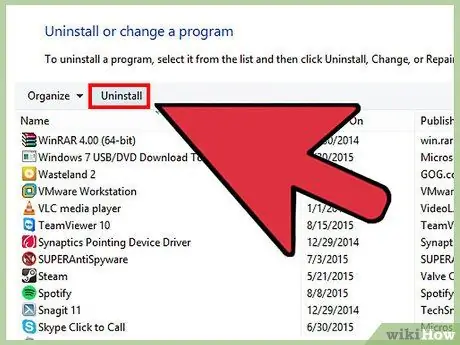
Step 3. Delete the Babylon home page
Babylon's translator software can irreversibly change the home page and other preferences. Follow these steps to remove the software:
- Windows: Open Control Panel, then select uninstall a program. Click the Uninstall button next to the "Babylon" program and follow the on-screen instructions. Repeat on Babylon Toolbar, Browser Manager, and Browser Protection if applicable. Now remove all add-ons related to Babylon from Firefox, as described above.
- Mac: Search for "Babylon" in the Applications folder. Drag the app into the Trash, then choose Finder → Empty Trash from the top menu. Remove the Babylon add-on from Firefox as described above.
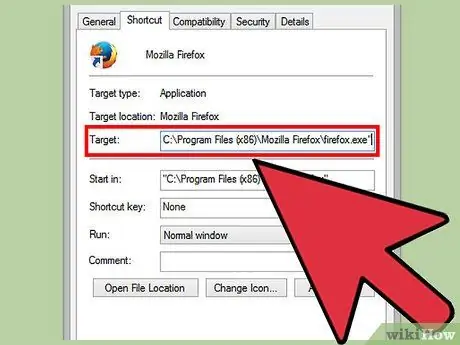
Step 4. Change Firefox properties (Windows only)
If your Firefox for Windows continues to display a home page that is not your choice, right-click the Firefox icon on the desktop and click Properties. Look for the "Target" column in the Properties menu, and scroll down to the end. If there are URLs in this field, remove them and the quotation marks around them. Do not delete other sections that are in the Target column
- If you use multiple Firefox shortcuts or taskbar icons, you may have to repeat this action for each of the shortcuts or taskbars.
- To prevent this from happening in the future, always say "No" when a program asks you to set your site preferences.
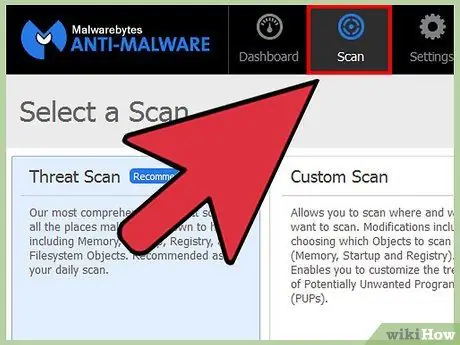
Step 5. Remove malware
If the problem persists, the malware that infected the computer may have affected Firefox. It cannot be removed from within Firefox settings, but you can solve this problem by following our detailed guide.
Tips
- You can also open the tabs you want to use as your home page and then click the Use Current Pages button below the Home Page box.
- Make sure the new home page you choose isn't a problem for other people who share your computer with you.






